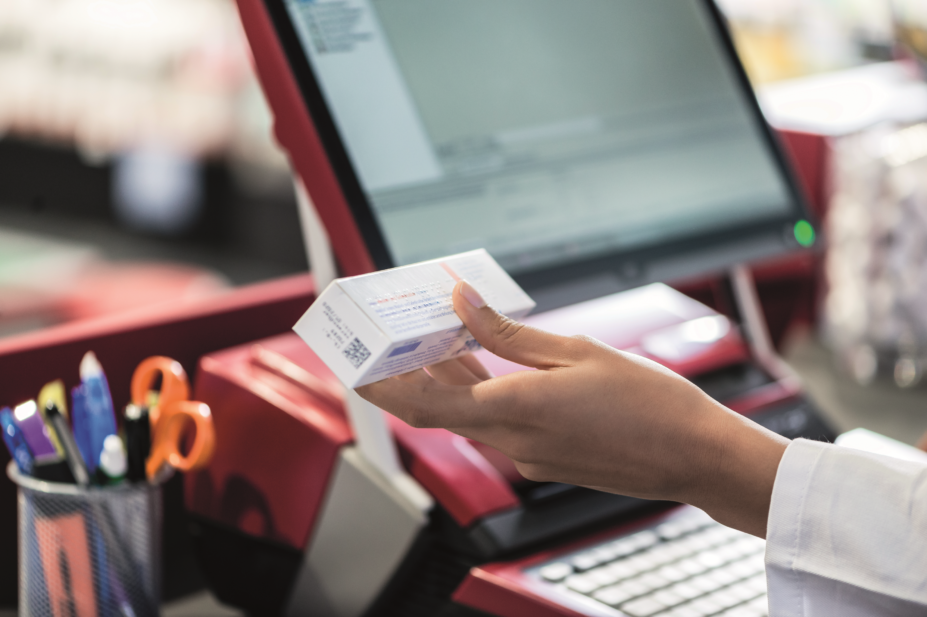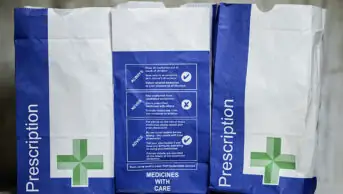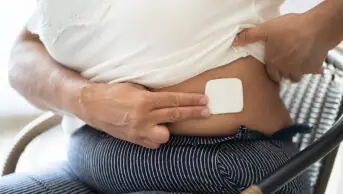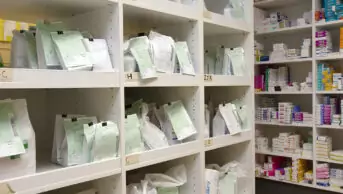
Shutterstock.com
Patients are now able to have their prescriptions processed electronically by any pharmacy in England under the latest extension to the electronic prescription service (EPS) initiative.
The latest EPS pilot, which launched in November 2018, means GPs from an initial four surgeries around England can now issue patients with a barcoded prescription – or ‘token’ – that can be processed electronically at any pharmacy across the country.
When presented at a pharmacy, staff will scan the barcode to download the electronic prescription from the NHS Spine, which allows information such as EPS and the patient summary care record to be shared nationally.
Previously, patients could only have their prescriptions processed electronically if they nominated a regular pharmacy to collect them from.
NHS Digital told The Pharmaceutical Journal that this is “the first time that patients without a nominated pharmacy have been given a token rather than a legal hand-signed prescription”.
They said: “This means that if a patient loses their token then it can be reprinted by anyone in a GP practice or can be downloaded manually by the pharmacy as the legal prescription is stored electronically.
“Previously, any paper versions that were printed or written by GPs contained the legal signature on that piece of paper meaning a GP would have to reissue and re-sign a prescription if it went missing.”
Patients with a nominated pharmacy will still have their prescriptions sent electronically without the need for a paper copy.
Another four practices will join the pilot in December 2018 and a further 11 are due to join in January 2019.
Farhan Ali, pharmacist manager at LloydsPharmacy in Ramsbottom, Manchester, one of the first pharmacists to dispense an electronic prescription as part of this pilot scheme said it “means [pharmacists] can track and locate more prescriptions quickly and easily, without having to spend valuable time calling the surgery to query a prescription’s status or whereabouts”.
He added: “We’ll also save time at the end of every month when my team spend hours collating, counting, processing and posting paper prescriptions.
Sibby Buckle, chair of the Pharmacy Digital Forum, which was hosted by the Royal Pharmaceutical Society, commented: “From a pharmacy point of view it’s better because it gives [pharmacists] consistency in that all our prescriptions will then be electronic prescriptions and [they’re] therefore easier to track … chase … and claim prescriptions at the end of the month.”
She also said the system must ensure that patients could not collect their prescriptions more than once from different pharmacies. Currently a patient’s nominated pharmacy must upload the prescription to the NHS Spine before another pharmacy could then dispense it, but this will change under the pilot scheme.
Buckle added that pharmacists would “need to have easier access to the summary care record because … [pharmacists] might want to check that there are no interactions with any of the other [medicines] if they’re not a regular patient”.
NHS Digital said in a statement that the general practices starting the pilot are in Southend-on-Sea, Bury, Plymouth, London, Nottingham, Salford, Leeds, Cornwall, Wolverhampton, East Sussex, Berkshire, Brighton, Devon, Cornwall, Sheffield and Doncaster.
NHS Digital added that EPS could save the NHS £300m per year once it is fully rolled out.
Ian Lowry, director for digital medicines and pharmacies at NHS Digital, said: “Every single prescription that is sent electronically, rather than via paper, saves money for the NHS as less time and valuable resource is spent processing and storing the paper prescriptions.”
In August 2018, NHS Digital announced that every pharmacy in London was signed up to the EPS, which was first introduced in 2013, which had enabled GP staff to send digital prescriptions directly from the practice to a patient’s nominated pharmacy.


